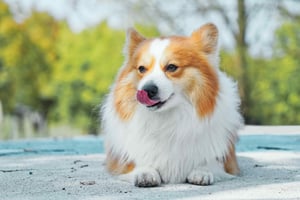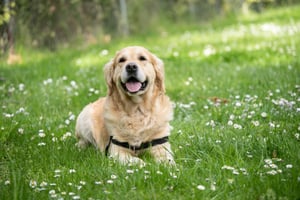Training a puppy can be a rewarding experience, but it can also be a challenge. The right leash can...
The Ultimate Guide to Best Potty Training for Puppies
Potty training puppies can be a daunting task, but with our comprehensive guide, you can make it a breeze. We'll cover the best methods, tips, and tricks to help you potty train your puppy quickly and effectively. From crate training to potty pads, we'll cover it all and provide the best potty training for puppies.
Why is Potty Training Important?
Potty training is an important part of puppy development. It helps puppies learn to control their bladder and bowel movements, and it also teaches them to recognize the appropriate places to go. Potty training also helps prevent accidents in the house, which can be a source of frustration for both you and your puppy.
Not only is potty training important for your puppy's development, but it is also important for your sanity. Keeping a clean and tidy house is a lot easier when your puppy is properly potty trained.
Best Potty Training Methods
There are a number of potty training methods available to you, and it's important to find the one that works best for you and your puppy. Here are some of the most popular methods:
- Crate Training: Crate training is a popular method for potty training puppies. This method involves confining your puppy in a crate when you are not home or are unable to watch them. This helps to prevent them from having accidents in the house.
- Potty Pads: Potty pads are an easy way to teach your puppy where to go potty. Place the potty pad in an area you want your puppy to use and encourage them to use it. Once they get the hang of it, you can gradually move the potty pad closer to the door or outside.
- Outdoor Potty Training: Outdoor potty training involves gradually teaching your puppy to go potty outside. Start by taking them outside immediately after meals or naps and praise them when they go in the right spot. Gradually increase the amount of time between potty breaks until your puppy is trained.
- Positive Reinforcement: Positive reinforcement is an important part of potty training. Whenever your puppy goes potty in the right spot, be sure to praise and reward them with a treat. This will help them understand that they are doing the right thing.
Tips for Potty Training Puppies
There are a few tips and tricks you can use to make potty training your puppy easier. Here are some of the best potty training tips for puppies:
- Schedule: Create a potty schedule for your puppy and stick to it. Take them outside at the same times each day and reward them when they go in the right spot.
- Supervision: Supervise your puppy when they are inside. This will help you catch them before they have an accident and take them outside immediately.
- Redirection: If your puppy starts to go potty inside, redirect them to the right spot. Take them outside and give them plenty of praise when they go in the right spot.
- Cleaning: Clean up any accidents quickly and thoroughly. Use an enzymatic cleaner to remove all traces of the accident so your puppy won't be attracted to the same spot again.
Signs Your Puppy is Ready to Potty Train
Before you start potty training your puppy, it's important to make sure they are ready. Here are some signs that your puppy is ready to start potty training:
- Age: Most puppies are ready to start potty training between 8-10 weeks of age.
- Bowel Control: Your puppy should be able to hold their bladder for at least 2-3 hours at a time before you start potty training.
- Signs of Awareness: Your puppy should show signs of being aware when they need to go potty. This may include sniffing, circling, or whining.
- Attention Span: Your puppy should be able to focus on you for at least 5 minutes at a time before starting potty training.
Common Potty Training Mistakes
Potty training your puppy can be challenging, and it's easy to make mistakes. Here are some of the most common potty training mistakes to avoid:
- Inconsistency: It's important to be consistent with potty training. If you are inconsistent or don't stick to a potty schedule, your puppy won't understand what is expected of them.
- Punishment: Punishing your puppy for having accidents will only make the process longer and more difficult. Instead, focus on rewarding your puppy when they go in the right spot.
- Ignoring Accidents: Ignoring your puppy's accidents will only make them think it's okay to go potty inside. Always clean up any accidents and take your puppy outside immediately.
- Too Much Freedom: Giving your puppy too much freedom too soon can lead to accidents. Start by confining your puppy to a small area when you are not home and gradually increase their freedom as they get better at potty training.
Conclusion
Potty training your puppy can be a challenging but rewarding experience. With the right methods, tips, and tricks, you can potty train your puppy quickly and effectively. The best potty training for puppies involves crate training, potty pads, outdoor potty training, positive reinforcement, and consistency. By avoiding common mistakes and following our guide, you can potty train your puppy in no time.



